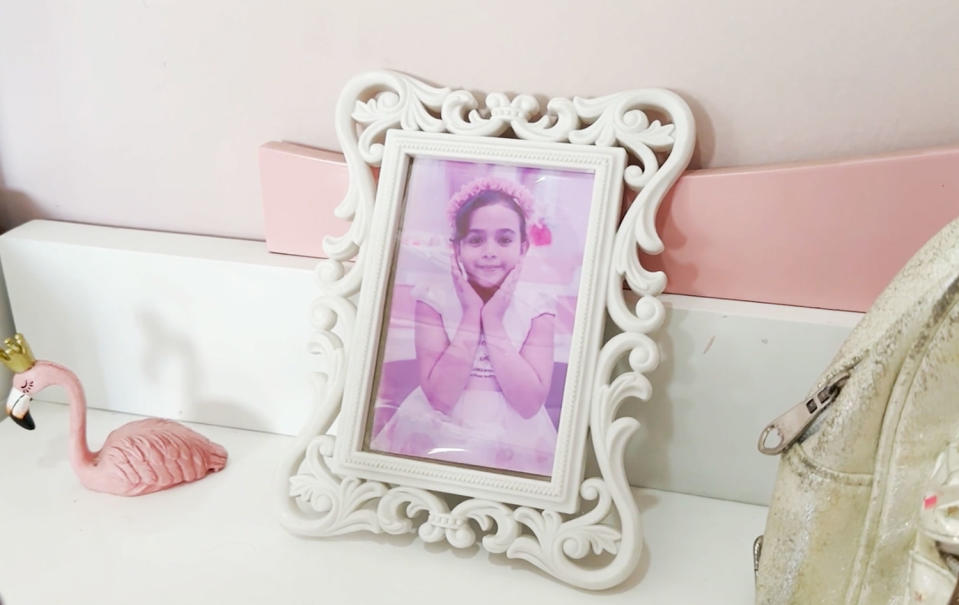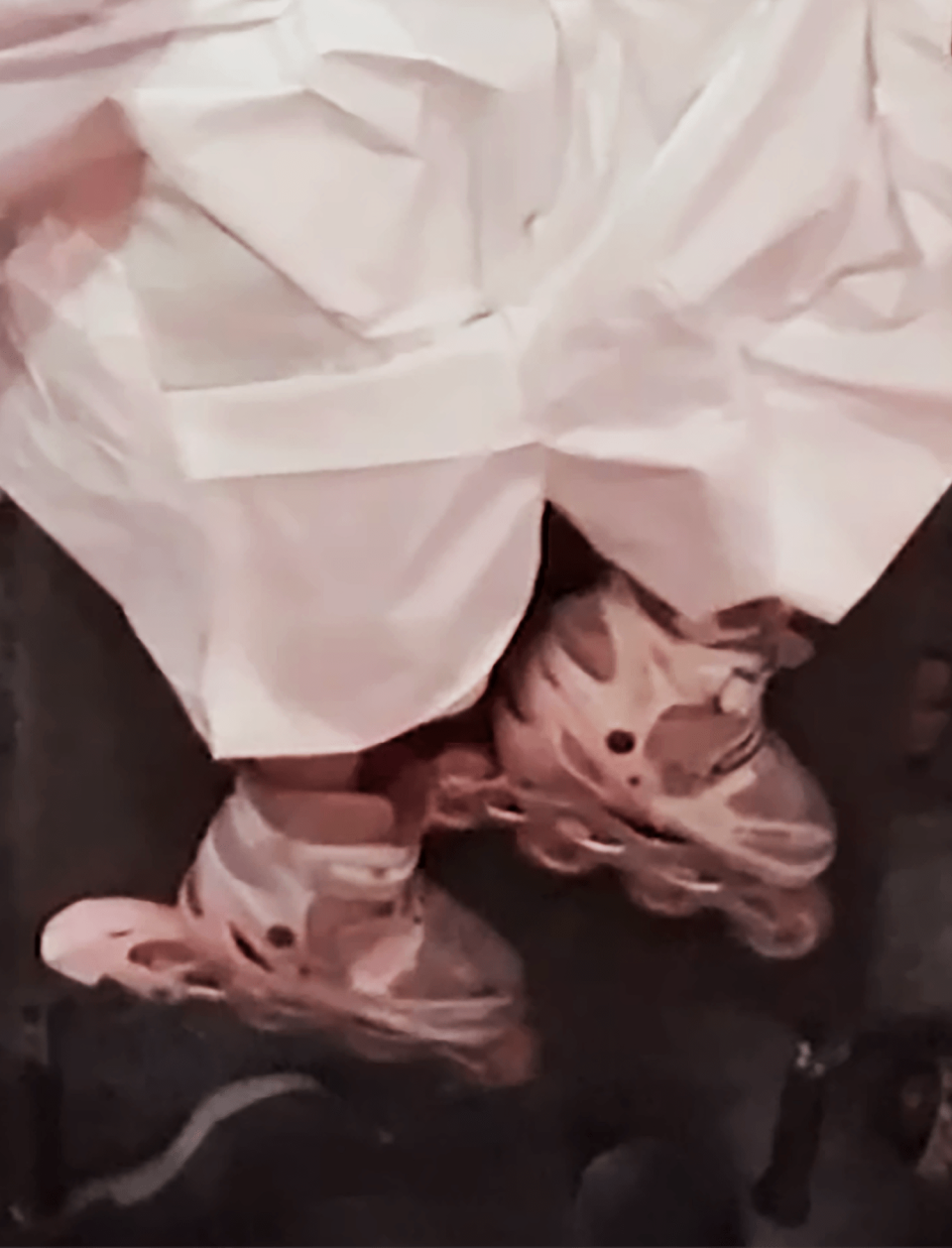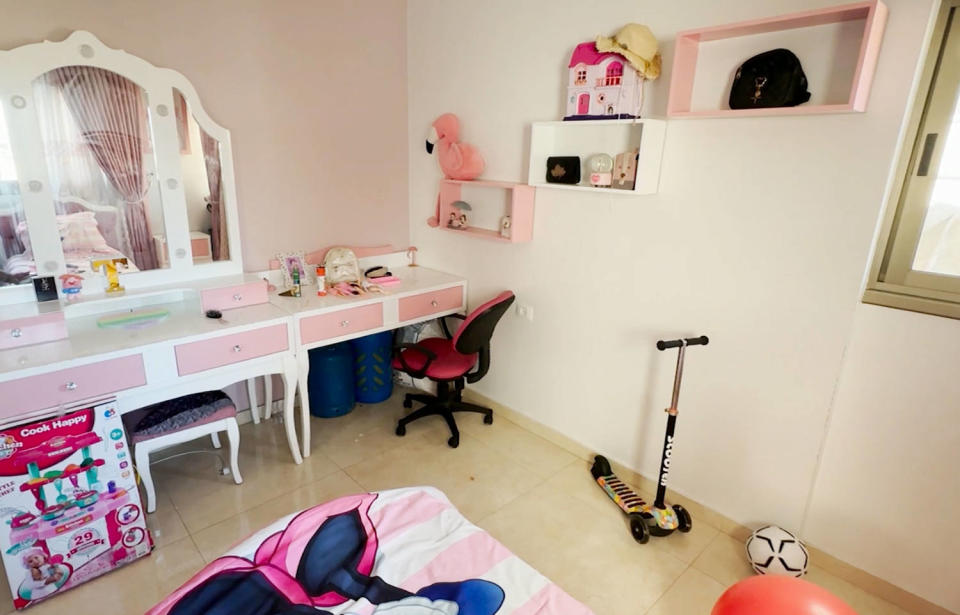Warning: This article contains graphic imagery.
Tala Hussam Abu Ajiwa wanted to go outside and play on her pink rollerblades.
At first Tala’s father, Hussam Abu Ajiwa, told his 10-year-old daughter that she couldn’t. But she “insisted and begged,” and like many parents, he and his wife relented despite their fears about the frequent blasts and gunfire around their home in Gaza City.
“She went downstairs to play. To enjoy playing as the rest of the world’s children do,” Abu Ajiwa told an NBC News crew on the ground Thursday.

But moments later he heard two “mighty explosions,” sending him running outside where he found his daughter lying beneath a pile of rubble, her feet clad in the rollerblades that she had hoped would afford her a brief moment of escape from a war that had come to dominate her young life.
It was the image of those rollerblades, with their white velcro straps and line of powder pink wheels poking out of the white cloth covering Tala’s body, that circulated widely on social media this week.
Tala’s family described the blast that killed her as an Israeli missile strike.
In response to a request from NBC News, the IDF said they were unaware of a specific strike that took place in the coordinates NBC provided, but had struck a target in its vicinity. They did not address questions about the type of weapon used on the target, or whether the IDF had opened an investigation into Tala’s killing.
NBC News has not independently verified the circumstances of the explosions.
Abu Ajiwa said he had rushed his daughter to the Al-Ahli Baptist Hospital, where she died despite desperate efforts to save her life.


Video obtained by NBC News shows the little girl wrapped in a white shroud, her rollerblades sitting on the floor nearby, as loved ones lean down to hold her, kiss her face and say their final goodbyes.
Abu Ajiwa said his family had been internally displaced for months in Gaza, along with some 90 percent of the population, according to the United Nations.
At some point, they were able to return to their home in Gaza City, with Abu Ajiwa showing NBC News’ crew his daughter’s room, brightly decorated in pink and white and filled with toys.
In other photos shared by her family, Tala can be seen posing in her school uniform and swimming as she holds up peace signs. In one photo she is kissing her dad on the cheek.
Now she is among the more than 40,800 people killed in Gaza, according to health officials there, since Israel launched its monthslong assault following Hamas’ Oct. 7 terror attacks.


The U.N. Office for the Coordination of Humanitarian Affairs (OCHA) reported in May that more than 14,000 children were among those killed, but it later clarified that that only represented children who had been identified — and that number has only continued to rise in the months since.
The grieving father said he could only hope that his daughter’s killing would shake the world into action to end “this hideous war.”
“I swear, if the war ended and the bloodshed stopped, I would still be sad about my daughter,” Abu Ajiwa said, at one point holding up the rollerblades— now stained with red. “But, I would also be happy that Tala was the reason for putting an end to the massacres.”
This article was originally published on NBCNews.com










